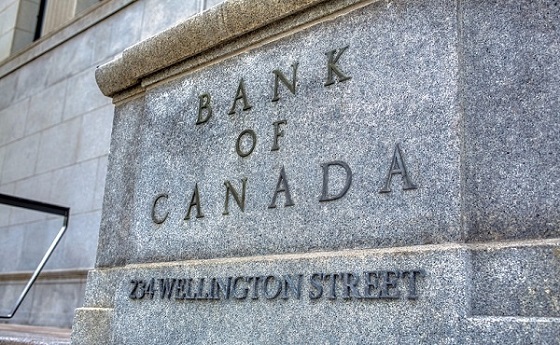CBDC Central Bank Digital Currency
Klaus Schwab pushes ‘fourth industrial revolution’ at WEF’s ‘Summer Davos’ opening

Chinese Premier Li Qiang (R) shakes hands with founder and executive chairman of the World Economic Forum, Klaus Schwab
From LifeSiteNews
At the WEF’s 2024 ‘Meeting of the New Champions’ in Dalian, China, Klaus Schwab praised China’s economic policies and urged ‘all stakeholders’ to ‘use technologies of the fourth industrial revolution in a wise manner.’
World Economic Forum (WEF) founder Klaus Schwab kicks off the Annual Meeting of the New Champions, aka “Summer Davos,” in Dalian, China, saying that economic growth and a more peaceful future will come from embracing innovation and forcing collaboration.
Speaking at the opening plenary alongside the president of Poland, Andrzej Duda, the prime minister of Vietnam, Pham Minh Chinh, and People’s Republic of China Premier Li Qiang, Schwab regurgitated parts of his speech from last year’s meeting, praising China for its economic policies while congratulating everyone participating in the event for representing “the most outstanding talents from business, government, academia, and civil society.”
In his very brief opening statement, the unelected globalist founder of the WEF said that the participants must “force collaboration” in order to drive economic growth and create a more resilient future.
“To drive future economic growth we must embrace innovation and force the collaboration across sectors, regions, nations, and cultures to create a more peaceful, inclusive, sustainable, and resilient future,” said Schwab.
“At this critical juncture the active participation of all stakeholders is essential to ensure a sustainable development path,” he added.
“To drive future economic growth we must embrace innovation and force the collaboration across sectors, regions, nations, and cultures to create a more peaceful, inclusive, sustainable, and resilient future” Klaus Schwab at the WEF #AMNC24 Summer Davos pic.twitter.com/puctx7Bg5m
— Tim Hinchliffe (@TimHinchliffe) June 25, 2024
Schwab also mentioned that technologies coming out of the so-called fourth industrial revolution would make the world a better place.
“We are witnessing rapid technological advances with many opportunities, and with artificial intelligence, rapidly transforming our production and our lives,” he said, adding, “Breakthroughs from the fourth industrial revolution provide new opportunities for global prosperity and growth.”
"Risks & opportunities co-exist.. Breakthroughs from the fourth industrial revolution provide new opportunities for global prosperity and growth" Klaus Schwab at the WEF #AMNC24 Summer Davos pic.twitter.com/jTcTMLaV9L
— Tim Hinchliffe (@TimHinchliffe) June 25, 2024
The WEF Annual Meeting of the New Champions runs from June 25-27 under the theme “Next Frontiers for Growth.”
At the end of the plenary and after the president, the premier, and the prime minister had all praised their countries’ achievements and ambitions, Schwab returned to the topic of the fourth industrial revolution while revisiting this year’s theme, saying that were “limits to growth.”
"The theme of this annual meeting is 'Next Frontiers For Growth,' but actually what we have seen in the presentations there are now Limits to Growth, provided we use technologies of the fourth industrial revolution in a wise manner" Klaus Schwab at the WEF #AMNC24 Summer Davos pic.twitter.com/SJDT5rLgIO
— Tim Hinchliffe (@TimHinchliffe) June 25, 2024
“Limits to growth” is a nod to the Club of Rome book of the same name published in 1972, and Schwab says that these limits can be overcome by using technologies of the fourth industrial revolution wisely, by taking care of nature, by seeing the green economy as a “great opportunity for humankind,” by exploiting the capabilities of the attendees, and by formulating collaborations between governments and businesses.
The WEF strives to be the “leading global institution for public-private collaboration,” which is the fusion of corporation and state, or corporatism.
Opening Plenary #AMNC24 with Li Qiang, @AndrzejDuda, Pham Minh Chinh (@VNGovtPortal), Klaus Schwab https://t.co/JCTBlo4V8C
— World Economic Forum (@wef) June 25, 2024
At the opening of last year’s Annual Meeting of the New Champions, Schwab praised Premier Li for “opening-up China’s capital market, attracting foreign investment, and innovation, and creating new urban areas to address land scarcity.”
He also thanked China for its “over 40 years of friendly and extensive partnership” with the WEF.
"Premier Li took his office this March at China's National People's Congress at a critical moment when China adopted new COVID control measures and started to boost economic development, social dynamism, and international cooperation": Klaus Schwab #AMNC23 #WEF pic.twitter.com/cWHGl5QNJs
— Tim Hinchliffe (@TimHinchliffe) June 27, 2023
During another session last year, Cornell University professor Eswar Prasad said that “we are at the cusp of physical currency essentially disappearing,” and that programmable Central Bank Digital Currencies (CBDCs) could take us to either a better or much darker place where governments could program CBDCs with expiry dates and to restrict undesirable purchases.
"You could have a potentially […] darker world where the government decides that [CBDC] can be used to purchase some things, but not other things that it deems less desirable like say ammunition, or drugs, or pornography, or something of the sort": Eswar Prasad, WEF #AMNC23 pic.twitter.com/KkWgaEWAR5
— Tim Hinchliffe (@TimHinchliffe) June 28, 2023
Last month the WEF announced that Schwab will be transitioning from his role as the executive chairman of the forum to become chairman of the board of trustees, which consists of some of the most powerful people on the planet.
Starting next year, the forum’s executive responsibilities will be run by a president and managing board.
The current WEF president is former Norwegian MP Børge Brende. He is also the chair of the managing board.
If Brende keeps his position as president, then he may be the new face and voice of the organization, which has been pivoting “from a convening platform to the leading global institution for public-private collaboration” for almost a decade.
However, executive decisions will not be placed on a single individual but will include a managing board as well.
Reprinted with permission from The Sociable.
Business
Global elites insisting on digital currency to phase out cash

From LifeSiteNews
By David James
The aim is to have the digital euro fully in place by 2030 in order to move Europe fully into the United Nations’ post-capitalist system described in Agenda 2030.
It always pays to scrutinize closely the comments of financial elites because they are rarely honest about their intentions. An instance is the comments of Christine Lagarde, president of the European Central Bank (ECB) who said there will be a vote next month in the European Union parliament on the next step toward creating a digital euro, which would be a central bank digital currency (CBDC).
A central bank digital currency is money issued by the central bank in digital form as opposed to digital credit issued by banks, which is the dominant form of money in Western societies. She claims that it will mean more freedom for Europeans and that there is nothing to fear.
Lagarde anticipates launching the digital euro in about 18 months. The aim is to have it fully in place by 2030 in order to move Europe fully into the United Nations’ post-capitalist system that is described in Agenda 2030.
Lagarde’s blandishments about what the digital euro represents do not survive close examination. She acknowledged that the main concern of the population is the privacy implications, claiming the ECB is looking at a technology that will offer protections. The private banks, she said, will apply the “rules of scrutiny” that already have access to the transactions. “We are not interested in the data. The private banks are interested in the data.”
Lagarde also said that the “people have dictated” the transition to a digital euro. This looks dubious. Neither the EU Commission nor the ECB is democratically elected. And if the main concern people have with a CBDC is privacy, then why would people prefer it over cash, which is immune to scrutiny? It is not as if a digital euro would satisfy an unmet need. Digital money – credit and online transactions – is already freely available in the banking system.
The ECB is also speaking out of both sides of its mouth, saying on one hand that the digital euro will only complement cash and on the other that cash will be eliminated.
Lagarde made it clear that the aim is to phase out cash completely. Agenda 2030, she claims, “can only be enforced in a cashless economy.” Why? What is it about cash that makes environmental policies impossible to implement? The answer is surely that a digital euro is needed to control people’s behavior, forcing them to comply with environmental rules.
Previous comments by central bankers suggest there is good reason for Europeans to be extremely suspicious. In 2021, the general manager of the Bank for International Settlements, Agustín Carstens, said: “We don’t know who’s using a $100 bill today and we don’t know who’s using a 1,000-peso bill today. The key difference with the CBDC is the central bank will have absolute control on the rules and regulations that will determine the use of that expression of central bank liability, and also we will have the technology to enforce that.”
The pretext for the financial power play is climate change and the push toward net zero. A European CBDC is not, as implied by Lagarde, the creation of a new digital monetary mechanism. As economist Richard Werner points out, that already exists – credit and debit cards, for example. The significance of a digital euro is that it threatens the banking system.
A CBDC, like cash, has no interest rate on it. So why would people continue to use credit produced by private entities such as banks or credit card companies – currently over 95 percent of the money supply – on which they have to pay interest? As the Reserve Bank of New Zealand noted, CBDCs have the potential to destroy private banks.
That problem does not seem to concern the ECB, however. Indeed, fundamentally altering the banking system may be what they are aiming for. Lagarde said “climate compliance” will become a core element of bank supervision, not a separate initiative, “because climate change presents significant, material financial risks to banks and the entire financial system.”
The ECB’s supervision will mandate that banks integrate the management of climate-related and environmental risks into their existing risk management processes, particularly through new prudential transition planning requirements under what is called CRD VI. European banking, it seems, will no longer be defined by profitability and fiscal soundness but also by the politics of climate change.
The slipperiness of the ECB‘s arguments point to a much darker ambition. Werner says when CBDCs are connected to digital IDs “we are talking about the most totalitarian control system in human history … it gives you as a controller complete visibility on what everyone is doing, every transaction.
“The monitoring is only one aspect. These CBDCs are programmable and you can use big data algorithms, which they sell to us as artificial intelligence, in order to have rules about who can buy what and for what purpose, at what time and at what place – and therefore control all your movement. In the history of dictatorships, there never has been such a powerful control tool.”
There is a flaw, though, in the ECB’s push to change Europe’s financial architecture that may prove fatal to its ambitions. The EU and ECB do not have genuine central control. When the euro was established in 1998, the only way Germany was able to join was on the condition there was no consolidation of the government debt. So, although the ECB notionally sets interest rates for the zone, government debt is held at the national level and each country’s interest rate differs.
The ECB is thus a central bank in name only, unlike the U.S. Federal Reserve, or for that matter most country’s central banks, that oversee their national government debt. A European nation can choose to exit the EU, and each has to have its own monetary policy in spite of the ECB setting a uniform rate.
The push to create a digital euro is most likely an attempt to deal with these contradictions, but at best it will be a makeshift solution and it will take very little for it to fall apart. Disintegration of the European Union, and the common currency, is not out of the question.
Meanwhile, the U.S. is going in the opposite direction. In July, the U.S. House of Representatives passed the Anti-CBDC Surveillance State Act, which prevents the Federal Reserve from issuing a retail CBDC directly to individuals.
European debt is becoming increasingly parlous, especially in France where there have even been suggestions that there might need to be assistance from the International Monetary Fund. Italy’s debt, which is 138 percent of GDP, is also problematic. Lagarde is hoping for a rollout of the digital euro in 2027 and completion in 2030. But the Euro zone, and the ECB that oversees it, may not last that long.
Banks
Top Canadian bank studies possible use of digital dollar for ‘basic’ online payments

From LifeSiteNews
A new report released by the Bank of Canada proposed a ‘promising architecture well-suited for basic payments’ through the use of a digital dollar, though most Canadians are wary of such an idea.
Canada’s central bank has been studying ways to introduce a central bank digital currency (CBDC) for use for online retailers, according to a new report, despite the fact that recent research suggests Canadians are wary of any type of digital dollar.
In a new 47-page report titled, “A Retail CBDC Design For Basic Payments Feasibility Study,” which was released on June 13, 2025, the Bank of Canada (BOC) identified a “promising architecture well-suited for basic payments” through the use of a digital dollar.
The report reads that CBDCs “can be fast and cheap for basic payments, with high privacy, although some areas such as integration with retail payments systems, performance of auditing and resilience of the core system state require further investigation.”
While the report authors stopped short of fully recommending a CBDC, they noted it is a decision that could happen “outside the scope of this analysis.”
“Our framing highlights other promising architectures for an online retail CBDC, whose analysis we leave as an area for further exploration,” reads the report.
When it comes to a digital Canadian dollar, the Bank of Canada last year found that Canadians are very wary of a government-backed digital currency, concluding that a “significant number” of citizens would resist the implementation of such a system.
Indeed, a 2023 study found that most Canadians, about 85 percent, do not want a digital dollar, as previously reported by LifeSiteNews.
The study found that a “significant number” of Canadians are suspicious of government overreach and would resist any measures by the government or central bank to create digital forms of official money.
The BOC has said that it would continue to look at other countries’ use and development of CBDCs and will work with other “central banks” to improve so-called cross border payments.
Last year, as reported by LifeSiteNews, the BOC has already said that plans to create a digital “dollar,” also known as a central bank digital currency (CBDC), have been shelved.
Digital currencies have been touted as the future by some government officials, but, as LifeSiteNews has reported before, many experts warn that such technology would restrict freedom and could be used as a “control tool” against citizens, similar to China’s pervasive social credit system.
The BOC last August admitted that the creation of a CBDC is not even necessary, as many people rely on cash to pay for things. The bank concluded that the introduction of a digital currency would only be feasible if consumers demanded its release.
Conservative Party leader Pierre Poilievre has promised, should he ever form the government, he would oppose the creation of a digital dollar.
Contrast this to Canada’s current Liberal Prime Minister Mark Carney. He has a history of supporting central bank digital currencies and in 2022 supported “choking off the money” donated to the Freedom Convoy protests against COVID mandates.
-

 Daily Caller2 days ago
Daily Caller2 days agoDemocrats Explicitly Tell Spy Agencies, Military To Disobey Trump
-

 Energy2 days ago
Energy2 days agoCarney bets on LNG, Alberta doubles down on oil
-

 Indigenous2 days ago
Indigenous2 days agoTop constitutional lawyer slams Indigenous land ruling as threat to Canadian property rights
-

 Alberta2 days ago
Alberta2 days agoAlberta on right path to better health care
-

 Alberta24 hours ago
Alberta24 hours ago‘Weird and wonderful’ wells are boosting oil production in Alberta and Saskatchewan
-

 Alberta2 days ago
Alberta2 days agoCarney government’s anti-oil sentiment no longer in doubt
-

 Alberta2 days ago
Alberta2 days agoAlberta Emergency Alert test – Wednesday at 1:55 PM
-

 Daily Caller2 days ago
Daily Caller2 days agoALAN DERSHOWITZ: Can Trump Legally Send Troops Into Our Cities? The Answer Is ‘Wishy-Washy’






